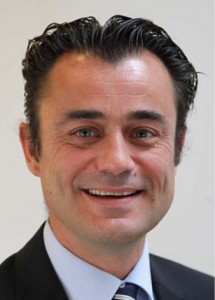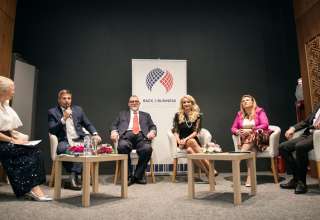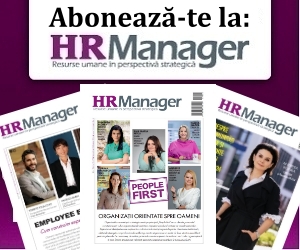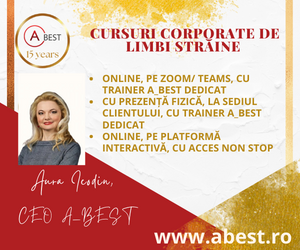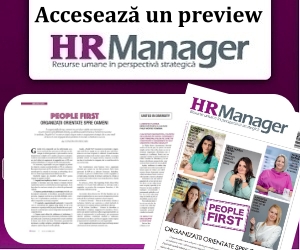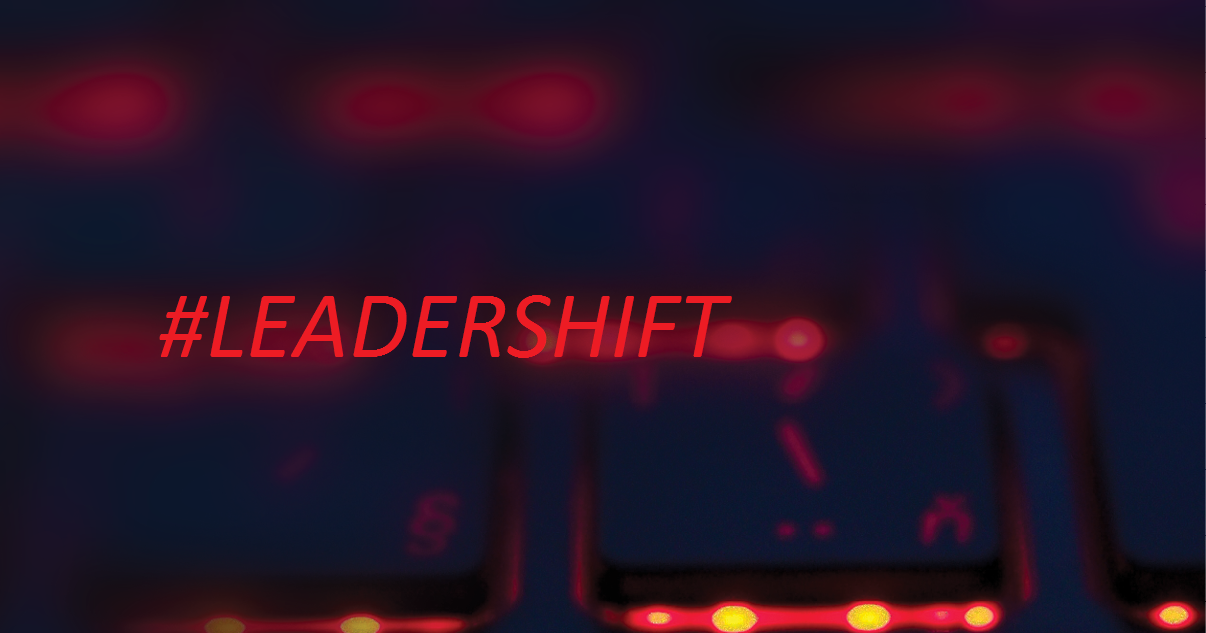
by Bernard Dewamme
Driven by technology, our interconnection and inter-dependence as individuals, as companies, and as countries are expanding exponentially. What’s selling now can be outdated tomorrow. If organizations of all sizes do not continually move forward, there’s the very real possibility they’ll go the way of the Dodo Bird faster than anyone could imagine. But what does this actually mean?
On the recruiting front, it means that top talent has different expectations than top talent did years ago. The focus has shifted away from just money and prestige (although these two still matters) to making a difference and self-improve.
On the learning front, it means that job requirements will continue to change, meaning many employees won’t have the new skills they need to excel in their role. It’s incumbent on business leaders moving forward to build a culture of learning where employees feel empowered to learn the skills they need to keep the organization ahead.
The final challenge is a personal one. Research shows that sleep, work-life balance and managing your personal energy is essential to building a lasting organization. And yet many business leaders spend so much time focused on the business or the market, that they don’t develop their personal energy skills and burn themselves out.
These changes will require new sets of leadership skills and these skills will soon be required of leaders in all types of organizations.
LEADERSHIFT
What will certainly remain the same: The importance of an inspiring vision, translated into an energizing ambition.
Because leaders cannot be physically present to manage and control, the only way they can be sure their people are working in a concerted effort is to create a shared vision, guiding values and clearly articulated strategies. Leaders must constantly paint and communicate a very clear picture of where the organization is going. Studies show that less than 10% of the companies have a clear vision that is really understood and embraced throughout the company. And studies show also that companies that rely on aligned Vision-Mission-Values are 17% more profitable than others.
As companies continue to expand, lack of a guiding framework will cause more serious problems unless leaders at all levels understand that this is one of their primary responsibilities.
LEADERSHIFT
What will certainly change: The leadershift that is required will need the power to energize on three levels: Individuals, Teams and Organizations.
It’s essential to stimulate reflection and awareness as well as the will to change and grow. When building teams and energizing individuals, it is key to start from the SQ (the Why):
- Why do we do what we do?
- Why change our leadership style?
- Why work together?
Giving sense to the sense is the pre-requisite to energize individuals, teams and organizations. When the leader, the team and the organization are aligned on the “WHY”, the next steps on “the HOW” (Process) and the “WHAT” (Content) will be much more relevant, accepted and integrated.
ENERGIZE YOURSELF: The power of personal energy – self leadership
Managing your personal energy is key! We all know about the importance of the Tripod of Performance:
The combination of IQ (be Smart – Brain – mental energy) + EQ (be Committed – Heart – emotional energy) + PhQ (be Fit – Body – physical energy).
However, the dimension of the Spiritual Quotient (SQ) is fast emerging because of our fast changing world. Exploring SQ offers the ability to bring sense and balance to individuals and organizations. It means reinforcing our mind, our heart and our body for the upcoming next level. Only SQ sets humans apart from both machines and animals.
Developing the energy of individuals on all four axes (IQ – EQ – PQ – SQ) is key to energizing your people on the way to excellence.
Besides the Intellectual Quotient, the need to develop the Emotional Quotient arises, along with the optimization of the Physical Quotient. Whilst people are basically recruited for their IQ capacities, rewards and promotion depends more upon their social and relational capacities (EQ), and their reliability over the long term depends on continuous attention to health maintenance (PhQ).
ENERGIZE YOUR TEAM: The power of Collaboration – teamship
It’s about sharing energy, exploring how leaders oxygenate the organization and optimize the energy of their teams, creating opportunities for people development, stimulating empowerment, accountability and trust amongst team members and between departments. Enable managers to build and rebuild the energy stock of their teams:
- How to cascade vitality and emotional energy
- How to feed the pipeline of good and talented people
- How to manage egos and solo players when managing a Group
THINK ABOUT
- Stimulating your self-leadership for personal reinforcement to perform under high pressure while maintaining a good quality of life and health is essential.
- Using the power of personal energy to make people aware that each individual has much more impact on their own energy than they can imagine.
- Stimulating engagement and the will to take action.
- Offering an environment, a workplace that provides the tools to deal with pressure in a better way, so sithat each individual has a platform from which he can decide how to react and which actions to take to increase his efficiency and create his own stock of energy.
Releasing the talent, the motivation, the engagement of people has never been successful under dictatorial regimes where people are merely told what to do (IQ – TELL). During the last decade, the most successful leaders and coaches have guided their people towards top performance using ASK before TELL, and EQ communication instead of IQ information. Transform rational IQ Visions into inspirational EQ Ambitions, moving leaders and their teams into a leadership and cultural transformation.
“Emotion” is the magic word of successful team leaders and coaches. They know precisely how to stimulate and lead their people towards top performance objectives. EQ skills are the most important leading competences to set people in motion and guide them towards Excellence. A well-defined and communicated purpose is closely associated with better team performance, reinforcing trust with stakeholders. Transform IQ Visions into EQ Ambitions.
- Give sense: Communicate a sense of purpose, and focus teams on priority areas.
- Simplify: Cut through the complexity to extract the core messages
- Stretch their minds for mental agility, openness and proactivity when facing new challenges.
- Rely on technology in the digital age to manage teams remotely.
Energize your teams to strengthen the feeling of teamship and igniting the power of collaboration.
ENERGIZE YOUR ORGANIZATION: The power of Culture – leadship
Companies are always expanding, becoming larger and more complex as they seek to establish a presence in new markets. Driven by technology, these changes require new leadership skillsets in all types of organizations. Below are eight major trends to energize your organization:
1. Fill the Vision-Execution gap. It used to be that strategy was the province of the top, while the bottom was responsible for execution. We have learned that this disconnects leaders from the realities of the organization. Leaders at all levels need to think both strategically and tactically. Managing the mid-space between the vision and execution.
2. Developing leadership capacity. The development of leadership capabilities is a business issue. There is no longer a separation between soft and hard. Leaders need to understand that they are responsible not only for business results but also for developing future leaders. Therefore they must hold their people as accountable not only for delivering results but also for how they accomplish them. Millennials and Gen Xers only want to work for leaders who are authentic: open, sharing, true to their values, compassionate, committed to a clear sense of purpose and, most important, possessed with courage to make bold decisions.
3. Valuing and effectively utilizing diversity. We must shift from traditional approaches to solving problems to utilizing the perspectives that others bring due to their gender, nationality, etc… We must adopt a “both/and” mentality and embrace the richness that is missing.
4. Influencing without direct reporting relationships. As companies expand and become more complex, no matter what organizational structure is in place, people must work with each other across reporting lines. A leader will no longer be able to say, “Do it because I told you so”. Your ability to influence will be key and dependent on your credibility and character.
5. Collaborating across boundaries. One person cannot have all the answers, nor can one group. The complexities of the organizations and the fast challenges they face demand that work be organized around the right people, regardless of what department they reside. Silos didn’t work well before. They are impossible in this world.
6. Using technology to manage at a distance. Technology has created many of these challenges. It also holds the answer. Nothing will ever replace the value of face-to-face time, but the reality is that most teams will be working together at great physical distances. Technology will be key in connecting people and teams.
7. Driving profits through principles and values. Organizations are made up of people. When we take a big picture and long-term view, we cannot afford to treat employees as commodities. For organizations to be effective and sustainable in the long-term, leaders must take into account the social and environmental impact of their actions.
8. Cultivate a growth mindset and a feedback culture. The professionals who accepted that change – i.e., embraced a growth mindset, as opposed to a fixed mindset – would be the ones who excel moving forward. One where learning is embraced instead of feared – is necessary. It’s part of every employee’s DNA, driving workers in real time to expand their knowledge, learn from one another and contribute to the mission of the organization.
In an age where many organizations focus their developmental interventions on “strengths,” and where feel-good approaches to management have substituted “flaws” and “weaknesses” with the popular euphemism of “opportunities,” it is easy to forget the value of challenging feedback. However, it is hard to improve on anything when you are unaware of your limitations, fully satisfied with your potential, or unjustifiably pleased with yourself. Although one of the best ways to improve employees’ performance is to tell them what they could learn, managers often avoid difficult conversations, so they end up providing more positive than challenging feedback.
By combining challenging feedback (Positive friction), needed to create awareness to change and the will to progress, with positive feedback (Positive recognition), needed to provide energy, stimulate motivation and provide fuel, you will stretch your teams and create a mindset where feedback is food for champions.
Company Culture is highly influenced by the behaviour of its Leaders: employees and teams are strongly impacted by the reactions of Leaders to critical situations, their exemplarity, marks of recognition, feedback, trust etc. By changing the Leadership style, your leadship will change the culture of the company. On the way to a Winning culture, stimulate first a Collaborative culture, bridging individuals, teams and departments across borders.
Energy is everywhere to stimulate the continuous improvement and addiction to progress attitude on three levels. Are you ready and willing to energize the leadershift on all three levels?
|
Bernard Dewamme Senior Executive Coach Bernard has more than 20 years of experience in coaching, accompanying individuals, teams and organizations in their addiction to progress and ambition for sustainable top performance. He is a Mental Coach of Olympic Gold Medalist Teams and Individuals (London 2012 and Rio 2016). He is a Senior Executive Coach in business and also gives lectures in different Universities and High Schools (INSEAD Fontainebleau). Bernard is part of the Mentally Fit Institute. |
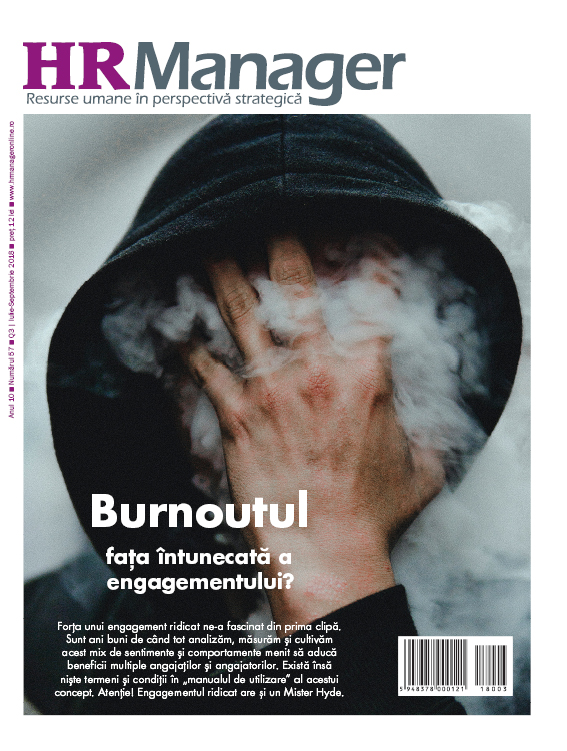 Acest material a fost preluat din
Acest material a fost preluat din
numărul 57 al Revistei HR Manager,
ediția din iulie-septembrie 2018.
Pentru abonare, click aici.

